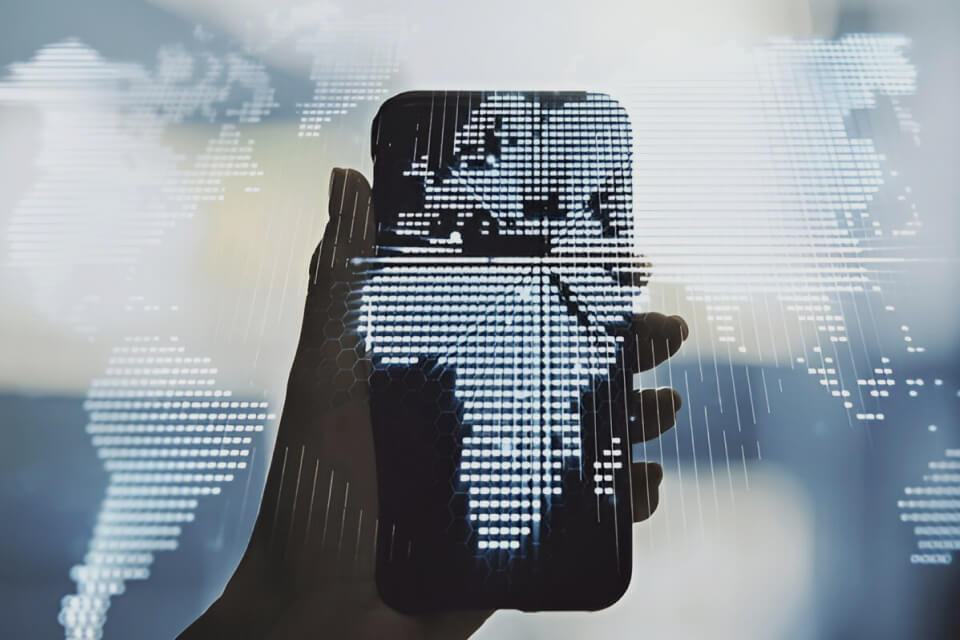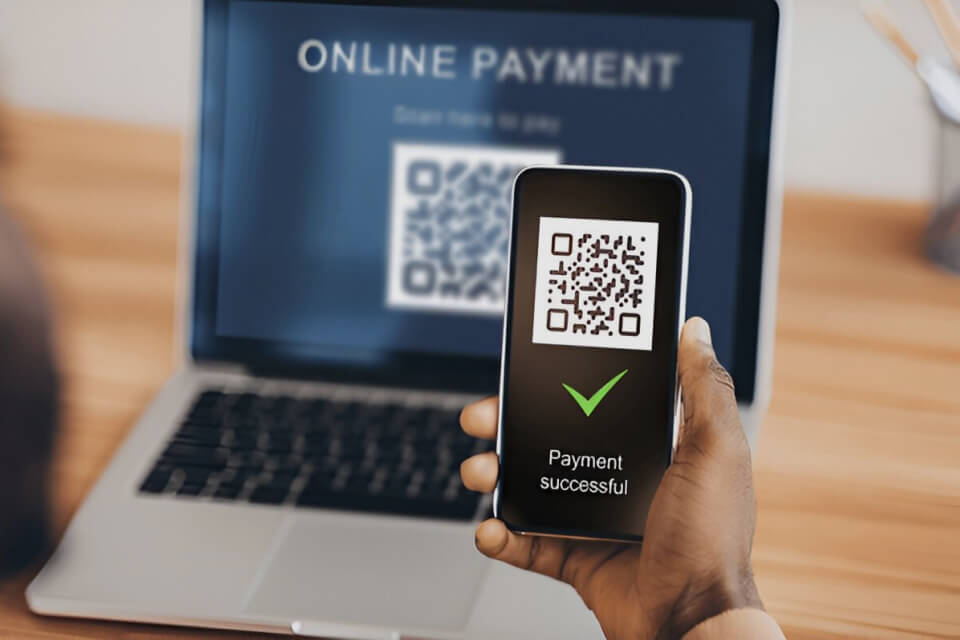Introduction
The future of digital payments in Africa is exciting. It is changing the way people send and receive money, shop online, and run their businesses. More people are now part of the financial system, even those who do not have a bank account. This growth is helping Africa’s economy and supporting the rise of online shopping. However, some challenges remain.
In this article, we will explore how digital payments work, why they are important, what problems still exist, and what the future could look like.
Overview of Digital Payments in Africa
Digital payments let people move money using phones, apps, or websites instead of using cash. In many African countries, services like mobile money have made life easier. For example, people in Kenya use M-Pesa to send money, pay for school, or buy food. This has been happening since 2007, and now millions of people across the continent use digital wallets every day.
Because of better internet and cheaper smartphones, even people in rural areas can now use digital services. Online shopping is also growing fast. Many stores accept mobile money or cards, so people can shop without using cash. More businesses are linking these payments with banks, making everything work more smoothly. Soon, most transactions may be cashless, and this will help create a stronger and more modern economy.
Importance of Digital Financial Services for Inclusion
Not everyone in Africa has access to banks. In fact, more than half of the people on the continent still do not have a bank account. This makes it hard for them to save money, borrow, or build businesses. Luckily, digital financial services are filling that gap. With just a phone, people can now save money, get loans, or pay bills.
This is very important for families and small businesses. With digital money tools, they can grow their income and improve their daily lives. Even more, people are starting to trust these services, especially when they learn how to use them safely. Education and community trust are helping more people feel comfortable with digital payments.
Current Challenges and Growth Potential
Even though digital payments are growing, there are still problems to fix. First, rules about money and payments are different in each African country. This makes it hard to send money across borders. To solve this, systems are being built to make it easier and faster.
Also, as more people use digital payments, keeping their information safe becomes more important. Strong laws and better technology are needed to protect users. In some places, poor internet and no electricity make it harder for people to join in. These areas need support to catch up.
The good news is that things are improving quickly. With the right support from governments and smart solutions from fintech companies, digital payments will reach more people. New tools will be faster, safer, and easier to use. People also need to learn how to pick the right payment method. This will help them avoid problems and use their money wisely.
Emerging Technologies in Digital Payments
Across the continent, new digital payment tools are making it easier, faster, and safer for people to send and receive money. These tools are not just for people in big cities or those with bank accounts. In fact, many of them are helping people in rural areas take part in the growing digital economy. Let’s break down some of the top technologies making this possible.
Mobile Money and Smartphone-Based Platforms
To begin with, mobile money has already changed how many Africans handle money. With just a basic mobile phone, people can send money to family, pay bills, or buy goods at the market. Services like M-Pesa, which started in Kenya, are now used in several countries.
Now, things are getting even better. Smartphone-based payment apps are adding more features and making digital payments smoother and safer. These apps make it easy to shop online, pay for services, or run a small business from your phone. As more people get access to smartphones and mobile internet, even those in remote areas can join the digital economy.
This rapid growth is helping to boost African e-commerce. People in cities and villages can now buy and sell online, and small businesses can reach more customers. However, to keep up, it is important to connect these digital platforms with African banking systems. That way, payments can move smoothly across different services, and more people can be included in the financial system.
Blockchain and Decentralized Finance (DeFi)
Next, we have blockchain and decentralized finance, also known as DeFi. These technologies are still new, but they have big potential. Blockchain is like a digital notebook that records every transaction clearly and safely. It doesn’t need a middleman, which makes things faster and cheaper.
This is great for cross-border payments. It means someone in Nigeria can send money to someone in Ghana in just minutes. DeFi platforms also offer other services like loans or insurance. Even people without a bank account can now borrow money or protect their business.
But with new tools come new risks. That is why the role of the government in regulating digital payments is so important. Governments across Africa are now working on rules to make sure these tools are safe, fair, and used responsibly.
Biometric Authentication and AI-driven Payment Systems
Let’s not forget about security. Everyone wants to feel safe when they send or receive money. That’s where biometric technology comes in. Instead of passwords, it uses your face, fingerprint, or voice to confirm your identity. This makes payments quick and secure.
On top of that, artificial intelligence (AI) is now being used to track payments and stop fraud. These smart systems can spot strange activity and warn users before anything goes wrong. This helps build trust and makes more people feel comfortable using digital payment services.
If we want to promote digital payments adoption, it’s important to teach people about these safety features. The more they understand, the more confident they will be in using digital tools every day.

Predicted Trends and Innovations
Digital payment is gaining a lot of traction. As more people get access to faster internet and smartphones, using cash is slowly becoming a thing of the past. New ways to pay are making life easier and safer for millions across the continent. Let’s explore the top trends and see how they will shape Africa’s digital future.
Rise of Contactless Payments and QR Codes
First, contactless payments and QR codes are becoming more popular. Now, instead of using cash, people can tap a card or scan a QR code with their phone. This is already common in many markets, shops, and transport systems. It’s fast, easy, and cleaner, which is great for health and hygiene.
What’s more, digital wallets like M-Pesa are growing quickly. With just a phone, people can send and receive money in seconds. This is helping more people buy and sell online, which boosts the role of digital payments in African e-commerce growth.
Growth of Cross-Border Digital Payment Solutions
Next, sending and receiving money between different African countries is getting simpler. In the past, this used to be slow and expensive. But now, systems like the Pan-African Payment and Settlement System (PAPSS) and programs under the African Continental Free Trade Area (AfCFTA) are making it quicker and cheaper.
Because of this, African businesses can trade with each other more easily. It also means local sellers can find new buyers in other countries. This big shift is helping to integrate digital payments with African banking systems and support trade across the continent.
Integration of Digital ID with Payment Systems
Another great change is how digital ID is being used with payments. A digital ID proves who you are online without needing paper documents. Many African countries are now building strong digital ID programs.
When combined with mobile wallets or online banking, these IDs help more people get access to financial services. This is especially useful for people who don’t have traditional bank accounts. In turn, this pushes how to promote digital payments adoption, especially in rural or underserved areas.
Expansion of Digital Wallets and Super Apps
Digital wallets are also becoming very common. They let you pay bills, buy goods, and send money without needing cash. But it’s not just about wallets anymore. Super apps are now taking over.
These apps do many things at once. You can shop, book a ride, pay for things, or even get a small loan. And yes, they often include security features like face ID or fingerprint unlock. As these tools grow, they make digital payments even more useful and simple for everyone.
This shift shows just how strong the future of digital payments is, with billions of dollars expected to flow through these systems in the coming years.
Impact of Global Financial Trends on Africa
Around the world, how we send, spend, and receive money is changing fast. And Africa is not left out. Global financial trends are pushing Africa to build better, faster, and safer ways to pay for goods and services.
Let’s take a closer look at how this is happening and what it means for businesses, families, and young people across the continent.
Influence of Fintech Investments and Venture Capital
First, one of the most important changes is the rise of fintech companies. These are tech-driven financial businesses, and many of them are getting money from local and international investors. This funding helps them build mobile wallets, money apps, and easy-to-use platforms. Because of these tools, many Africans now have better ways to save, send, and spend money.
For example, mobile money services like M-Pesa grew quickly because investors believed in the idea and supported it. With more investment, these companies can now improve their services. They are adding better security, connecting with banks, and offering services like buy-now-pay-later or digital wallets that work across borders.
This is helping even people in rural areas, many of whom do not have bank accounts, get access to digital payments. As a result, integrating digital payments with African banking systems is becoming a reality.
Shifts in Remittance Flows and Diaspora Engagement
Another important trend is the way Africans living abroad send money home. These payments, called remittances, are very important for many families and communities. Now, with digital tools, sending money has become faster and cheaper.
Because it is easier to send money, people are doing it more often and in larger amounts. But that’s not all. Africans abroad are also investing in businesses back home and taking part in the online shopping space. This helps African e-commerce grow, especially when safe and fast payment systems are available. So, as the connection between the diaspora and Africa gets stronger, the role of digital payments in African e-commerce growth also becomes more important.
Adoption of Global Payment Standards and Infrastructure
Next, many African countries are now working to follow global payment standards. These are rules and systems that make it easier for banks and businesses to work together. One example is the Pan-African Payment and Settlement System. It helps people and companies in different countries send and receive money in real time, using their local currency.
This is great news for businesses, especially those that trade across borders. It means fewer delays and lower costs. At the same time, governments and banks are improving their systems. More countries are offering digital wallets with fingerprint login or facial recognition. Some are also looking into using central bank digital money. These changes are helping build a modern, touch-free payment world. They also make it easier for people to trust and use digital tools in their daily lives.

Potential Changes in Regulatory Landscape
As more people use mobile money and online platforms to send and receive cash, it becomes important to set up strong and smart rules. These rules and regulations help make digital payments safe for everyone. But because technology is growing so fast, regulators must work quickly to keep up. They need to protect users, stop fraud, and still give space for innovation to grow.
Let’s look at some big changes that are shaping how digital payments work in Africa and why they matter.
Evolution of Central Bank Digital Currencies (CBDCs)
First, let’s talk about Central Bank Digital Currencies, also known as CBDCs. These are digital forms of a country’s regular money, and they are issued by the central bank. That means the government is in charge of them.
Countries like Nigeria and Ghana are already testing or using CBDCs. Why? Because they make sending and receiving money faster and safer. You no longer need to wait for bank approvals or worry about delays. With CBDCs, payments can happen instantly.
This is great news for online businesses. It will boost the role of digital payments in African e-commerce growth, as customers can shop and pay more easily. Also, it will integrate digital payments with African banking systems, helping more people enjoy the benefits of both digital tools and regular banks.
Data Privacy and Consumer Protection Regulations
Next, let’s look at privacy and safety. When you pay online or use a digital wallet, your personal and money details are collected. So, it’s very important that this information is kept safe.
Many African countries are now putting strong data protection rules in place. For example, South Africa already has solid laws to protect users. And more countries are following.
When people feel that their money and data are secure, they are more likely to use digital payment tools. That’s why promoting digital payments adoption means making sure users can trust the system. These rules also stop fraud and scams. When safety increases, trust grows, and more people come onboard.
Regional Harmonization of Fintech laws and Policies
Now, here’s another issue: each African country has its own set of rules for digital payments. This makes it hard for businesses to offer services across borders.
But there is good news. Many countries are now working together to fix this. For example, Ghana and Rwanda have started a program that allows fintech companies to operate in both countries without starting from scratch.
This idea, known as regional harmonization, helps reduce costs, makes it easier to move money across countries, and integrates digital payments with African banking systems more smoothly. Projects like the African Continental Free Trade Area are helping make this happen even faster.
Future Opportunities for Digital Payment Solutions
More people now use mobile phones and the internet every day. Because of this, digital payments are becoming part of everyday life. This change is not only helping more people get access to money services, but it is also helping businesses grow faster across Africa.
Let’s take a look at the most important areas where digital payments will make a real difference.
Serving unbanked and underbanked populations
First, one big opportunity lies in helping people who don’t use banks. Today, many Africans still don’t have bank accounts. This makes it harder for them to save money, borrow, or pay for goods and services easily.
Now, thanks to mobile money and digital wallets, more people can join the financial system. They can send money safely, pay bills, or shop online without needing a bank. As more people get included this way, African economies can grow even faster. Everyone gets a better chance to take part in business activities.
Enabling microtransactions and digital commerce
Another big benefit is that digital payments make small purchases easier. These small payments, like buying airtime, groceries, or bus tickets, are called microtransactions. In the past, handling these with cash was slow and hard. But now, apps and mobile wallets make it quick and easy.
This is great for both buyers and small business owners. As digital payments grow, it becomes easier to shop online or accept money digitally. This helps digital commerce expand, which is an important part of Africa’s economic future.
As digital payments integrate with African banking systems, they become more trusted and reliable. This means even more people will start using them every day.
Building trust through secure and transparent systems
People definitely need to trust the tools they are using. That’s why safety and honesty in digital payments are very important. In the future, more money will be spent on making sure payment platforms are secure and private.
People want to know their money and information are safe from fraud or theft. Luckily, both companies and governments are working to create clear rules and safety standards. These efforts help users feel more comfortable switching from cash to digital payments. As trust grows, more people will use these services confidently.
Public-private partnerships to drive financial innovation
One more exciting part of the digital future is how governments and companies work together. Public-private partnerships are helping to grow digital payment systems quickly.
Governments help by building better internet access and passing helpful rules. Private companies focus on creating new tools like mobile wallets and quick payment apps. Together, they are changing how people send, spend, and save money.
This teamwork helps create fast, safe, and easy digital payment systems. At the same time, the role of government in regulating digital payments remains important to keep the system fair for everyone.

Frequently Asked Questions (FAQs)
1. What emerging technologies are shaping digital payments in Africa?
Mobile money, digital wallets, Central Bank Digital Currencies (CBDCs), and blockchain-based solutions are key technologies driving innovation across Africa’s payment landscape.
2. What future opportunities exist for digital payment solutions?
There is huge potential in expanding financial inclusion, improving cross-border transactions, serving the unbanked population, and integrating payments into e-commerce and banking systems.
3. How can businesses integrate digital payments with African banking systems?
By partnering with banks and fintechs, businesses can use APIs and platforms that connect payment solutions directly to banking infrastructure for seamless transactions.
4. What role does the government play in regulating digital payments?
Governments set rules to protect consumers, prevent fraud, ensure data privacy, and support fair competition while encouraging innovation in the digital payment space.
5. How can consumers and businesses choose the right digital payment solution?
They should consider security, ease of use, transaction costs, compatibility with bank accounts, and the ability to handle cross-border transactions.
Conclusion
The future of digital payments in Africa is bright and full of promise. As mobile penetration deepens and new technologies like CBDCs and digital wallets grow, more Africans will gain access to fast, secure, and affordable payment systems. This will boost e-commerce, improve financial inclusion, and drive economic growth across the continent. Governments and businesses must work together to regulate and integrate payments smoothly while encouraging innovation.
Clearly, the future of digital payments will play a vital role in Africa’s digital economy and help unlock new opportunities for millions.



